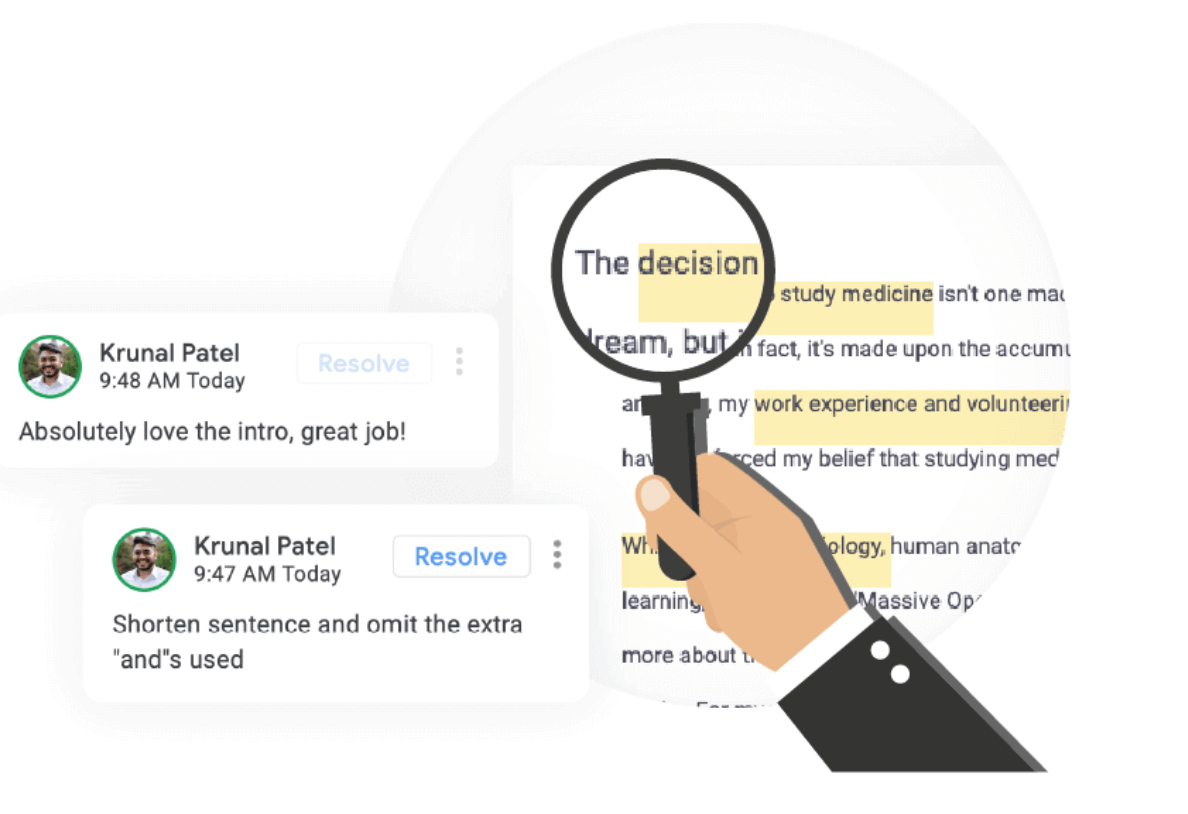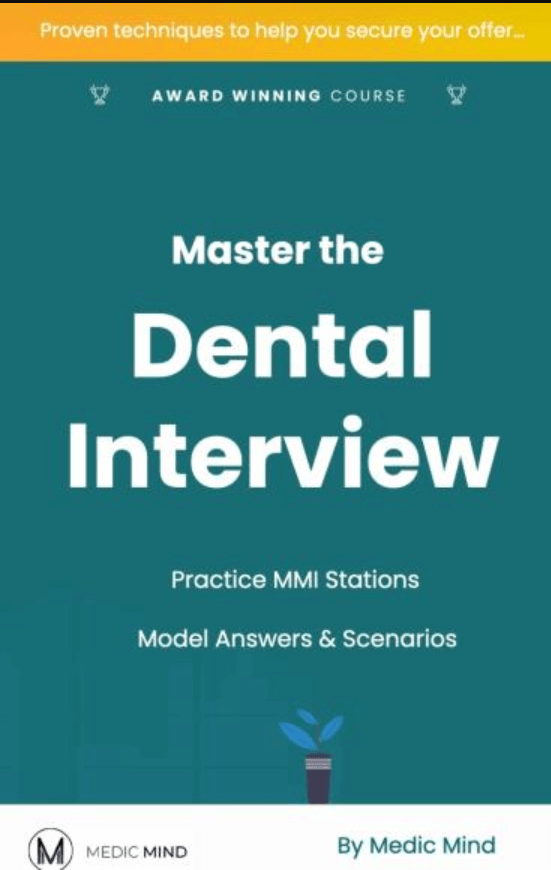Loading...


Top 10 tips for Dental Hygiene and Therapy Personal Statement

1. Stick to the Personal Statement Word Limit
Firstly, your personal statement is only a one-page essay, which must not exceed 4,500 characters, (including spaces, numbers, letters, etc). Your personal statement gives the university a clear picture of who you are and, most importantly, why you want to pursue a career in Dental Hygiene and Therapy.
2. Show Examples of Interest in Dental Hygiene and Therapy
The aim of the personal statement is to get the university’s admission team interested in you. You are wanting them to invite you to an interview. Try not to tell them who you are, show them with examples. Bring up interesting stories from your everyday life, which portray your best qualities and try to relate them to Dental Hygiene and Therapy, for example, optimism, attention to detail, confidence, empathy, manual dexterity, and communication skills.

3. Start Writing Early
Starting early. The earlier you start the better your personal statement will be. It is important to give yourself plenty of time to create a solid plan of what you are going to include and the structure of it. Write as many drafts as you can, this will help build a template ready for the final draft.
Make sure to start 6 months before the deadline. The time you need to prepare for your personal statement will depend on your writing skills and your availability to sit and take the time to produce ideas, plan and write it up.
4. Plan and Brainstorm
How to start? Firstly, try to begin brainstorming ideas and topics to include in your personal statement. Make sure to focus on key experiences, which will tell your story and help you realise why this is the profession/career you want to pursue. Make sure to choose a memorable opening, something that will draw the reader in and keep the reader engaged and wanting to know more about you.
A quick go-to on how to start brainstorming
- Ensure to make a list of events and experiences that reflect on the evolution of your path to a career in dentistry.
- Make a list of your strengths and things that keep you motivated.
- Think about key people and how they have inspired you.
- Think about the message you wish to convey in your personal statement.
Essential questions that need to be thought about before writing your draft:
- What have you learnt from your experiences?
- What will you contribute to Dental Hygiene and Therapy?
- How have your hobbies and academic experiences influenced your desire to pursue a career in dentistry?
- What personal qualities do you have to make you a good Dental Hygiene and Therapist?
- Why do you want to study Dental Hygiene and Therapy?
- What inspired you to apply for Dental Hygiene and Therapy?
- What do you find attractive about Dental Hygiene and therapy that no other career has to offer?
When preparing for your first draft of your Dental Hygiene and Therapy personal statement, make sure to spend some time on it, as it will make the writing of your personal statement so much easier.
When writing about personal qualities, be honest, as it is important to be yourself. Here are some important qualities to include:
- Artistic
- Empathetic
- Attentive to detail
- Great communication skills
- Confidence
- Great interpersonal skills
- Professionalism
- Good ethic
- Hard-working
5. Check Grammar and Spelling
Ensure to check grammar and spelling; it is essential to avoid any grammar inconsistencies.
Ensure to also pay attention to the past/present and future tense and make sure there is not too much switching between them. Keep it professional and try not to use “I’m” or “don’t.”
Clarity and flow
It is essential that your personal statement MUST show a clear picture of your interests and strengths. Too many themes in the personal statement could make it confusing and cloud the bigger picture of who you are as a person.
Make sure that each paragraph flows into the next one. This can be a challenge, especially when trying to fit so much information into a minor character limit, but try your best to add what you feel is the most important and show the reader YOU!
6. Show don’t Tell
Do not say it; show it. Remember that everything you bring up, whether about yourself or interests in your personal statement, needs to be backed up. For example, do not just say, “I’m great around people and a people pleaser.” Instead, try and say, “throughout my volunteering, I realised my enjoyment of interacting with people and how my communication skills can help me with future patient interactions.” some other examples may include:
- General Dental Practice Placements (2 weeks recommended)
- Dental Technician Placements (1 week recommended)
- Online course for Dentistry
If unsure about your skills or interests, brainstorm and draw some of those connections. It is also great to get friends and family members involved, as a second opinion counts. Try to think of qualities that no other student will write down, remember that you need to stand out and you are up against hundreds of other applicants wanting the same place on the course.
7. Be Honest
Be honest. Understand that honesty is the best policy. No matter what you say, always tell the truth.
It is also important not to copy anyone else’s personal statement, even if it is an online one or your friend’s personal statement. This counts as plagiarism, and all universities have a system to check that plagiarism has not occurred within your statement.
8. Show Enthusiasm for Dental Hygiene and Therapy
Be enthusiastic about dental hygiene and therapy. All these universities are looking for someone passionate and enthusiastic about dentistry. You want to showcase that you have gone out of your way, in your own time, to gain as much experience before starting university. It illustrates initiative and it’s what will make you stand out. If there aren’t specific dental examples where you have done this, sign yourself up so that you can include this in your statement. It all has to be true so don’t start making things up as they might catch you out in your interview stage! Remember, that universities are looking for someone who wants to learn and show dedication.
9. Try to Stand Out
Try to stand out. Talk about what you have done and how your experience stands out compared to others; an example could be you do lots of volunteering work, which can be formal or non-formal or that you have a part-time job, and how these skills are transferable for the degree in Dental Hygiene and Therapy.
To stand out does not need to be dentistry specific, as universities just want you to be yourself and show that you are not the same as every other applicant. They are looking for those who go beyond to make themselves stand out, so brag a little and tell them how proud you are of yourself and all the things you have achieved. Some topics you may bring up can be related to dentistry, but be sure to expand.
10. Get a Personal Statement Check
Get someone to check your personal statement for you. Ask someone to check over your work, even if this is a friend, parent, or teacher; it is always great to see what others think of it and get a unique perspective. If you know anyone studying Dental Hygiene and Therapy, it may be worth contacting them and asking if they could read it and give you a few pointers. Also, do not be afraid to ask if you could read their personal statement too. Seeking advice from current, past dental students will be instrumental, as they got onto the course based on their personal statements.
My Personal Statement
As a qualified, GDC-registered dental nurse I ensure to maintain the NHS values and respect every individual equally. My favourite part is being able to interact with patients and aid their understanding of oral hygiene. Being able to communicate with a wide range of people of all ages and backgrounds is one reason why I enjoy dentistry, as well as the challenges and opportunities that it offers.
A favourite aspect of dental nursing is the satisfaction of treating patients using a tailored approach and seeing the end results. Being a dental nurse has made me realise the significance of understanding the physiology of the mouth and the whole body. Being able to relieve a patient from pain or enhance their confidence by improving their oral hygiene makes it such a rewarding career, and has encouraged me to progress further in the field of dentistry.
I have assisted with a wide range of treatments, for example, endodontic extractions and the preparation stage for crowns and dentures. From my experience assisting during surgery, I can appreciate how the hygienist’s empathy and communication skills help to build a rapport with patients, and the positive effect that being caring and compassionate has on their general wellbeing.
One of my most memorable moments whilst working with a hygienist was when I came across an extremely nervous patient. I helped them to relax by asking simple questions and distracting them with humour, which put them at ease and made them laugh. Interactions like this have helped me to appreciate the importance of empathy and adapting my communication strategies to suit the patient’s needs. My experiences with patients and the dental team so far have left me with no doubt that I want to be a part of this valuable and rewarding community.
As a dental professional, I make sure to strive for personal and professional excellence. I have faced many challenges with frustrated and anxious patients; however, my professional manner and respect remained consistent throughout. I have come up with different strategies to reassure anxious patients, such as offering a pre-treatment visit, to let the patient get acquainted with the staff and comfortable in the dental chair.
The GDC principles have come into action many times. One patient I remember was a boy who had little understanding of oral hygiene and was in a lot of pain. Due to his fear, he was unable to cooperate with the dentist’s assessment. Using a calm and friendly manner, I reassured him so that we were able to continue with the treatment. When I saw him again, he greeted me with a huge smile. Knowing that I made an impact on this boy and his oral hygiene is one of the proudest moments of my career so far. This experience helped reinforce the concept that effective patient-centred care and communication, as reflected in the GDC principles, with principles one and two; “put patients’ interests first”, and “communicate effectively with patients” are vital within dentistry.
Another important aspect is the ability to work closely with individuals in order to build a trusting patient-clinician relationship. I find it particularly compelling to witness patients gradually gain faith in the value of preventative care and education in oral health.
I am currently studying for an Access to HE Diploma. Exploring human physiology, anatomy, and the behaviour of drugs inside the body has made me all the more enthusiastic about applying my knowledge in dental practice.
Dentistry aside, I enjoy playing badminton and painting, both activities which have helped to develop my manual dexterity. I enjoy looking after my body using a holistic approach, incorporating diet and exercise such as yoga, to keep my body in good shape and improve my posture. With my experience as a dental nurse, adaptable communication skills, and drive to further my learning, I believe that I would be well suited to pursuing a career as a Dental Hygienist and Therapist.
As expressed, your personal statement needs to stand out, resemble you and most importantly show why you want to pursue Dental Hygiene or Dental Therapy.

Frequently Asked Question
→What is a dental hygiene and therapy personal statement?
A dental hygiene and therapy personal statement is a written document that is required as part of the application process for admission to a dental hygiene and therapy program. It is an opportunity for the applicant to showcase their skills, experience, and personal qualities to the admissions committee.
→How long should a dental hygiene and therapy personal statement be?
The length of a dental hygiene and therapy personal statement can vary depending on the specific program’s requirements. However, most programs require a personal statement of around 500-1000 words.
→What should be included in a dental hygiene and therapy personal statement?
A dental hygiene and therapy personal statement should include information about your motivation for pursuing a career in dental hygiene and therapy, your relevant experience and skills, your understanding of the role of a dental hygienist or therapist, and your commitment to professional development.
→Should I include my academic achievements in my dental hygiene and therapy personal statement?
Yes, academic achievements can demonstrate your academic ability and potential, so it is important to include them in your personal statement. However, it is important to balance academic achievements with other relevant experiences and skills.
→Is it important to tailor my dental hygiene and therapy personal statement to each program I apply to?
Yes, it is important to tailor your dental hygiene and therapy personal statement to each program you apply to. This can involve researching each program’s specific requirements and highlighting how your skills and experiences match those requirements.
→How can I make my dental hygiene and therapy personal statement stand out?
To make your dental hygiene and therapy personal statement stand out, focus on specific examples and experiences that demonstrate your skills and abilities. Use active verbs and avoid generic statements. Additionally, make sure to proofread your statement carefully to ensure that it is free of errors.





Was this article helpful?
Still got a question? Leave a comment
Leave a comment